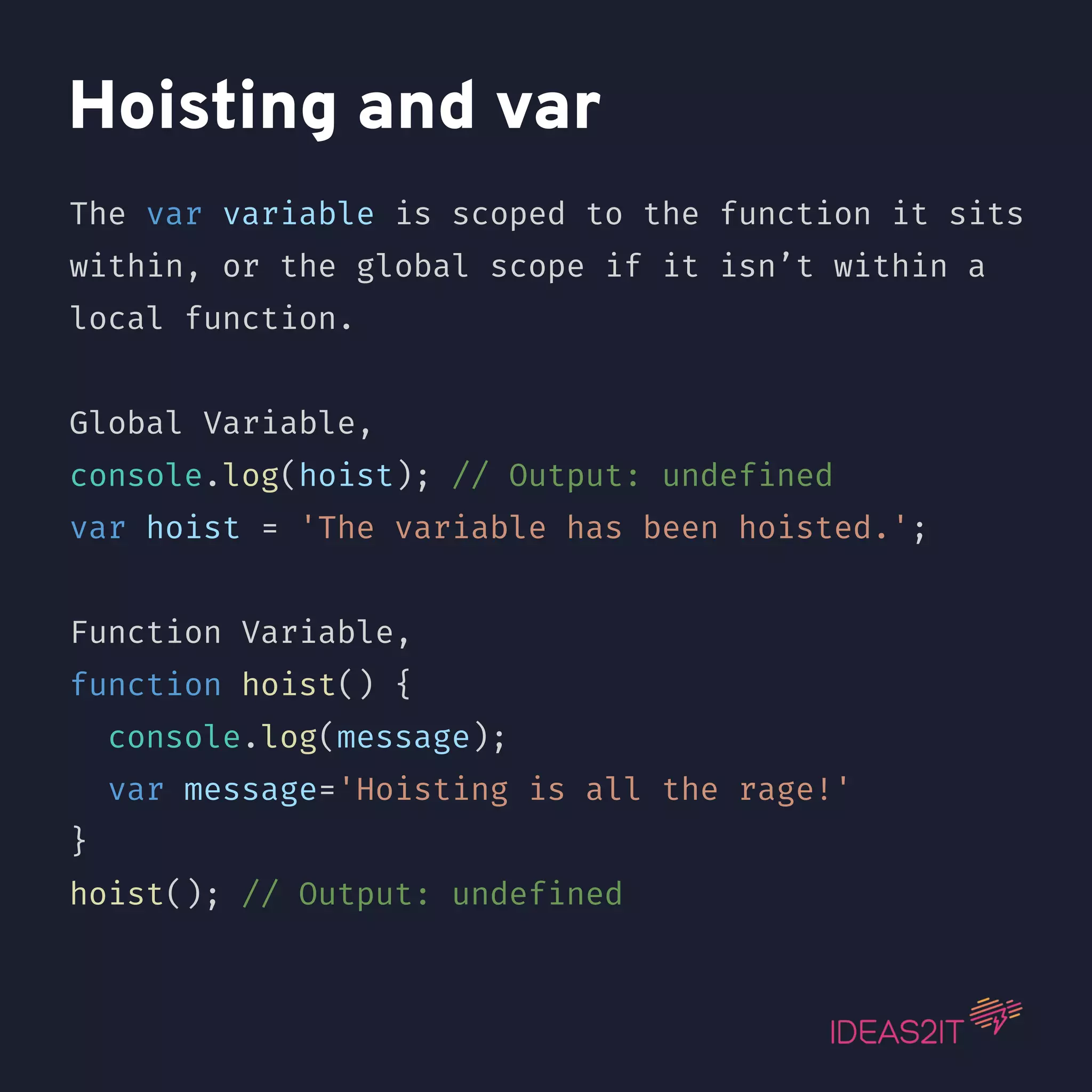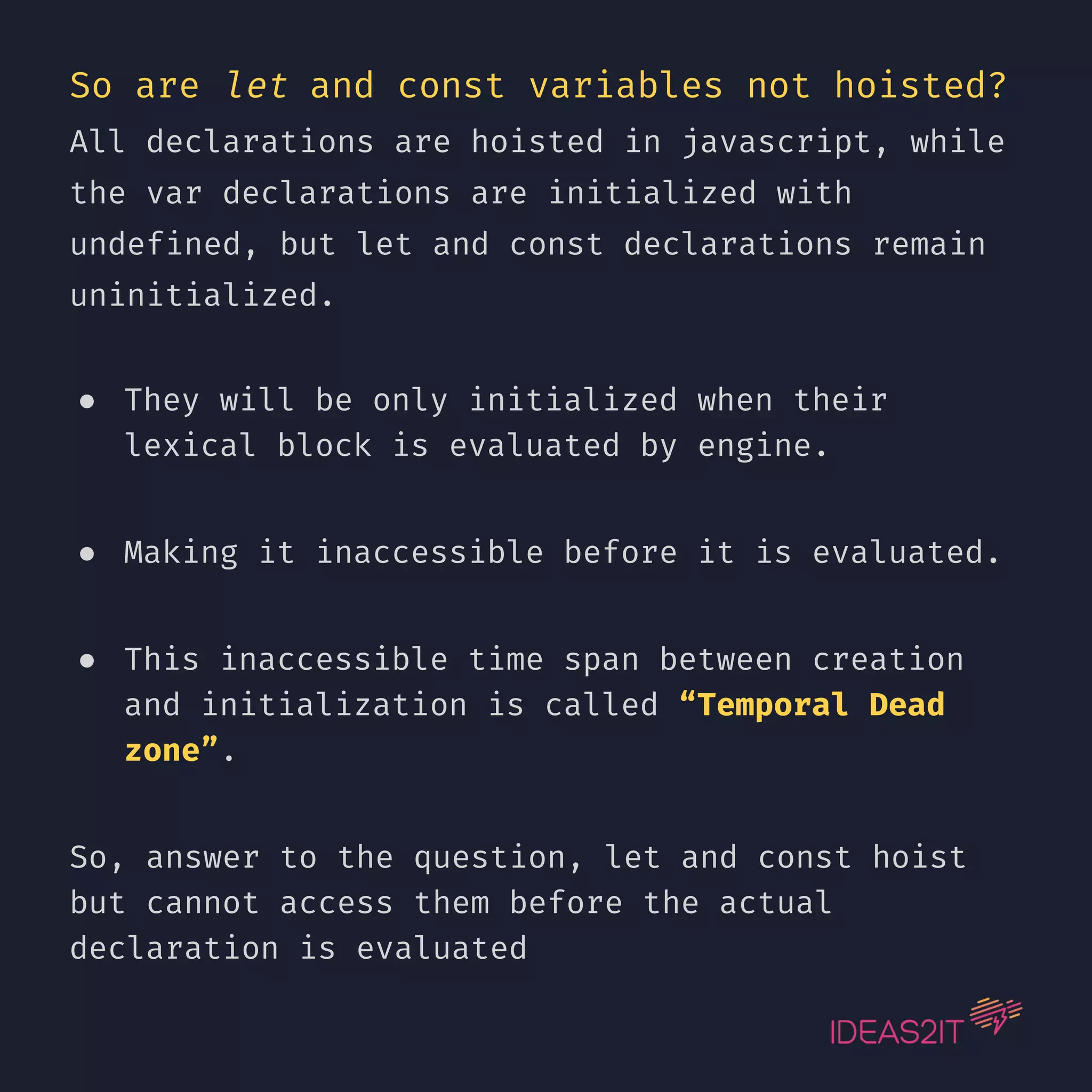Variable hoisting in JavaScript moves variable declarations to the top of their scope before execution, affecting how variables declared with var, let, and const are accessed. While var variables are hoisted and initialized with undefined, let and const are hoisted but uninitialized until evaluated, creating a 'temporal dead zone.' This means let and const cannot be accessed before their declarations are executed, leading to reference errors in such cases.





